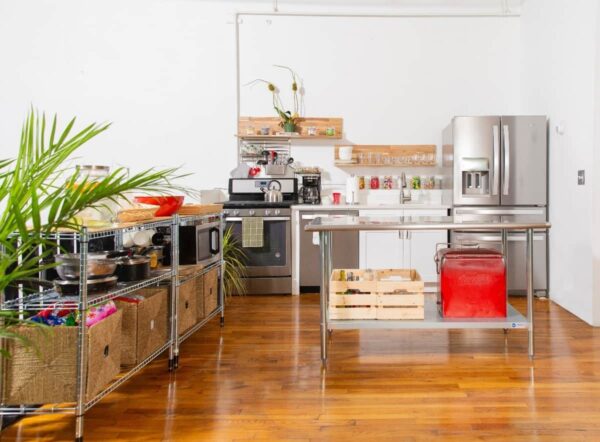The margins in the restaurant industry can be very thin at times. So anything you can do to keep costs down may have a major impact on your bottom line. The question is, where do you begin?
Manage Inventory Well. Your inventory is critically important to your daily operations and the bottom line. If you do a poor job of managing inventory, it can create serious issues for your team and add unnecessary pressure into the equation.
Ordering excessive inventory leads to high costs and a high risk of waste (due to expiration). Under-ordering can force you to shrink your menu due to not being able to fulfill customer requests. The goal is to order just what you need. And the best way to do this is by adopting a JIT inventory method.
JIT stands for “just-in-time.” It’s an inventory strategy where you only order supplies and ingredients as demand warrants. This prevents excess ordering and helps you keep costs down. It can take some time to dial in a JIT system, but if you’re meticulous about tracking and recording data, you’ll find this method to be very successful.
Maintain Appliances. Proper maintenance will do wonders for you. Take a walk-in cooler, for example. By investing in preventative maintenance and purchasing walk-in cooler replacement parts before major issues arise, you can maintain optimal energy efficiency, keep energy costs down, and prevent a small issue from causing a total system breakdown in the future (which could lead to thousands of dollars in spoiled goods).
Optimize Employee Schedules. If you aren’t already optimizing employee schedules to account for seasonality and demand, now’s a good time to do so. Human labor is one of the most expensive aspects of running a commercial kitchen, and if you’re thinking about the ebb and flow of busy and slow periods, you could be over-staffed during part of the day (inflating payroll costs) and under-staffed during other parts (preventing you from maximizing revenue). The sooner you get this sorted out, the more efficient your operations will be.
Cross-Train Staff. Proper staff training is paramount to running a profitable commercial kitchen. Not only should they be trained on ways to improve the efficiency of food preparation and storage, but they should also be cross-trained in an effort to ensure every employee is able to step in and serve in multiple roles when the situation arises.
Whether an employee calls in sick or quits without notice, cross-training can help you avoid embarrassment, remain efficient, and lower labor costs.
“If for instance, your bartender calls in with a last-minute excuse, a crucial area of your restaurant could be left uncovered, leading to disgruntled customers and a negative impact on your bottom line,” TigerChef.com explains. “However, if you cross-train other members of your staff to also act as bartenders in a pinch, a waiter or a line chef can pick up the slack at the bar and the staff shortage will hardly be felt.”
It obviously takes time to cross-train, but it’s time well spent. It’s better to use those resources on the front end than to find yourself in a dire situation at some point in the future. Pay now or pay later – the choice is yours!
Join a GPO. Large national chain restaurants have deep pockets and numerous locations, which allow them to get the best prices on ingredients, supplies, and equipment. But if you’re a standalone commercial kitchen, you don’t have that same buying power. As a result, you end up paying much more for the same items (which obviously drags your profit margin down).
If you want to enjoy some of these same cost benefits as larger companies, your best option is to join a group purchasing organization, also known as a GPO. With a GPO, you pay a membership fee and the group (which consists of other restaurants and food businesses like yours) leverages its collective buying power to negotiate competitive prices. In the end, this can lead to thousands of dollars in annual savings.
Give Your Bottom Line a Boost
If you run a commercial kitchen, you’re playing a game of margins. Your passion might be food, but it’s the money that you have to focus on in order to enjoy the more exciting elements like creating a menu, entertaining guests, and winning awards. Dial-in your numbers and the good times will keep rolling!



